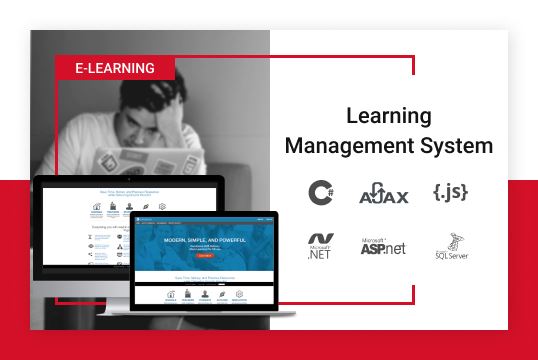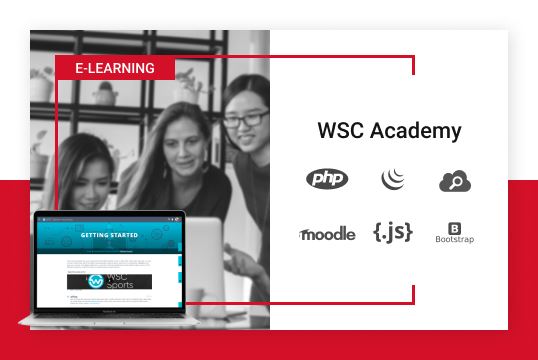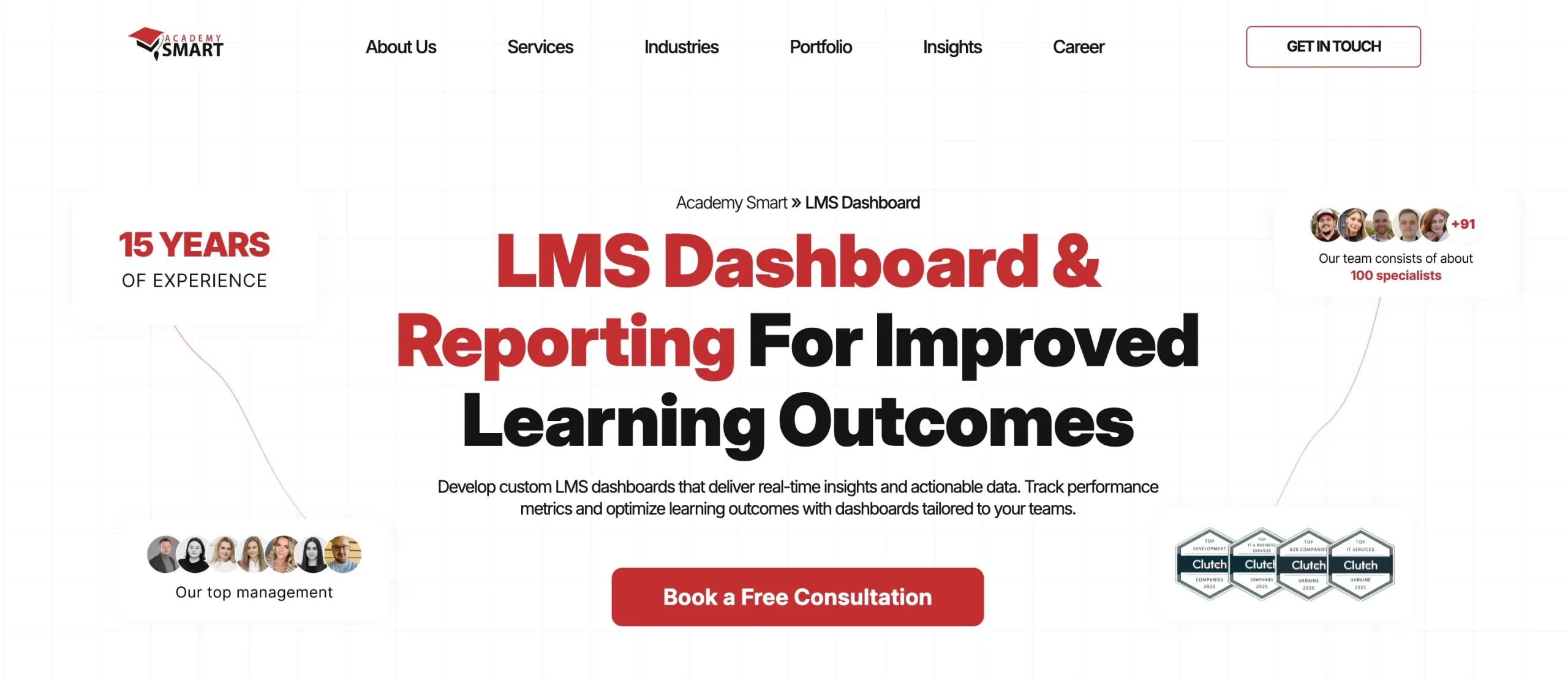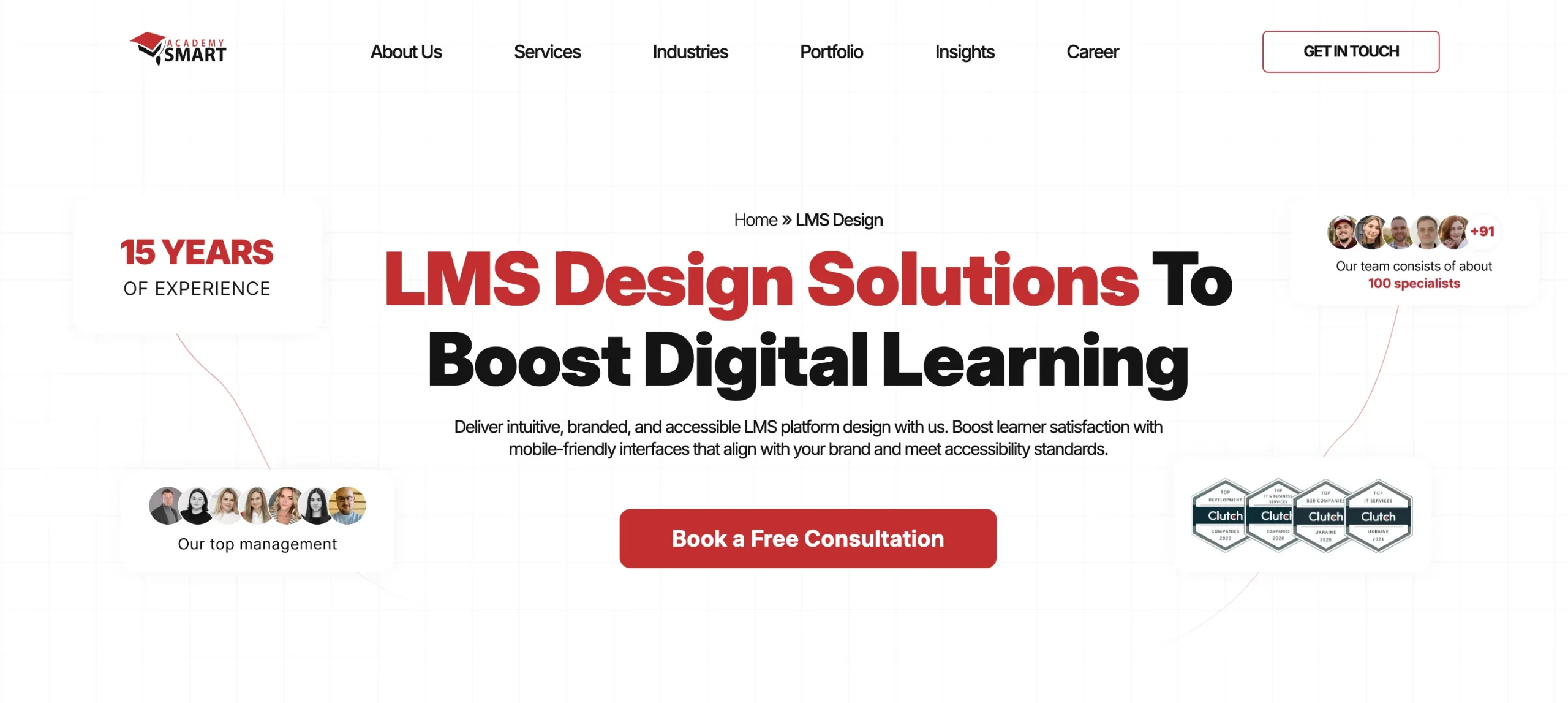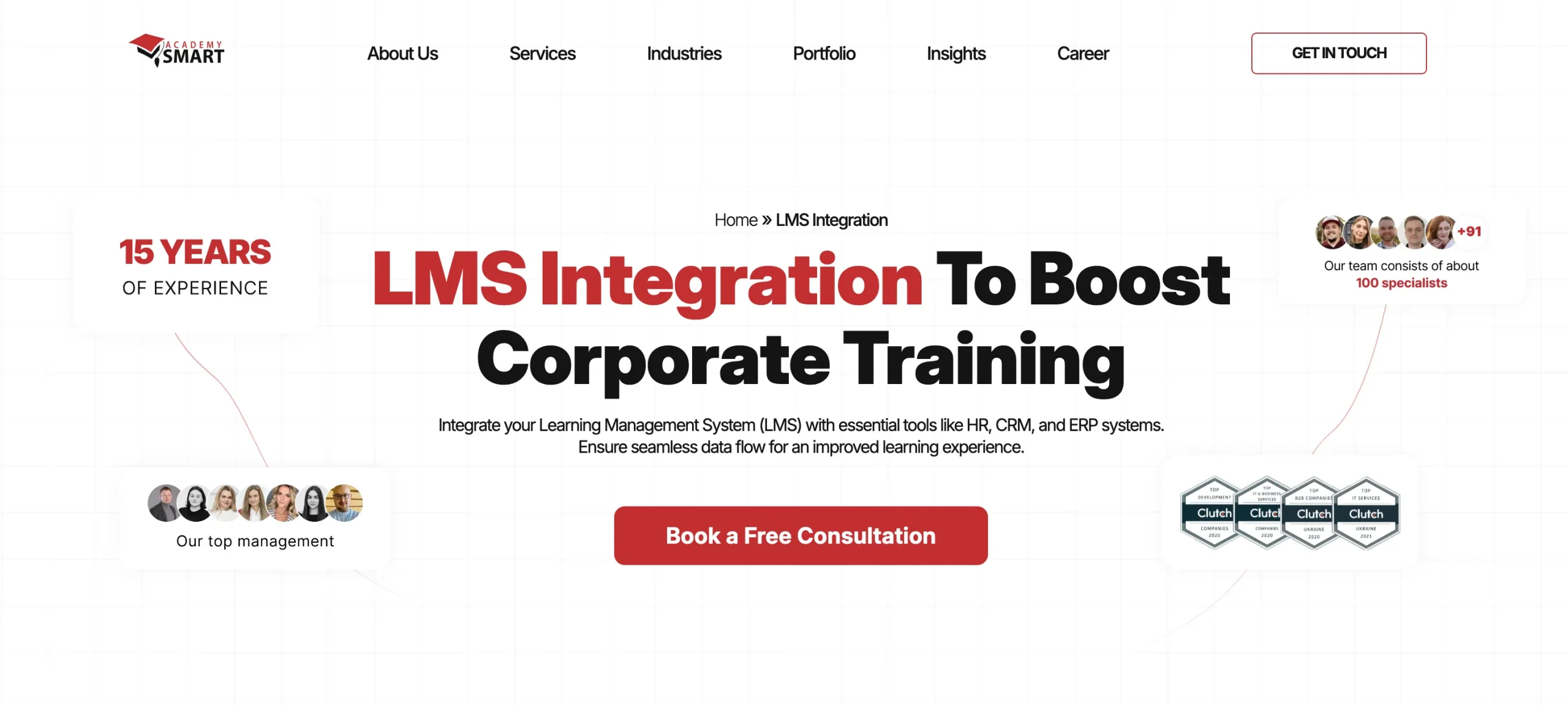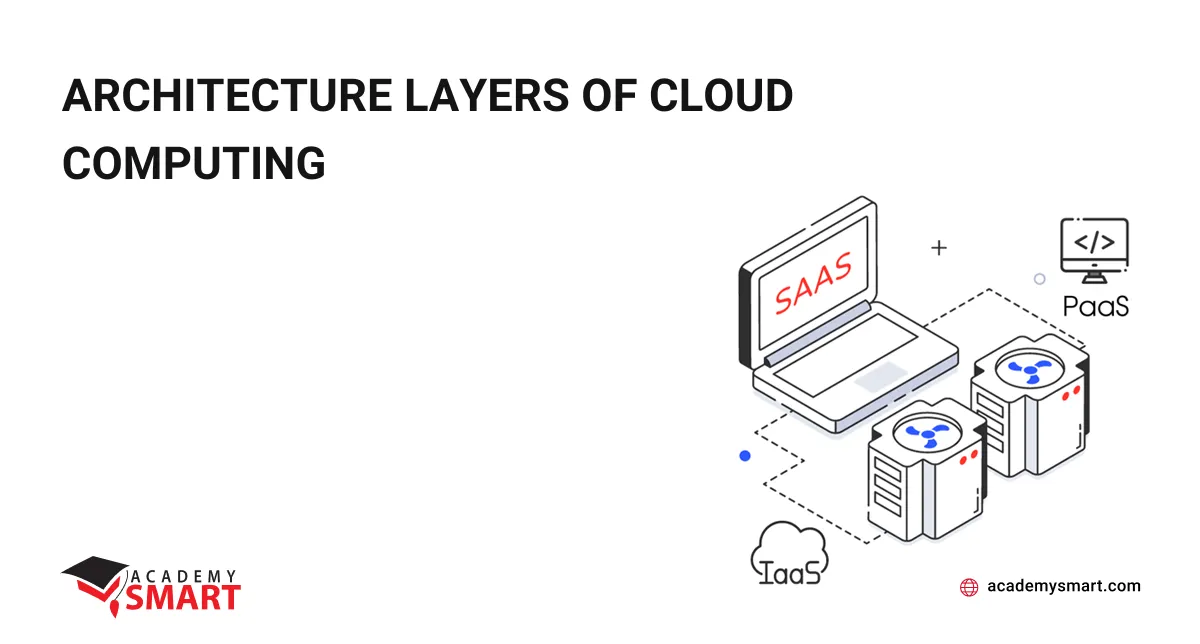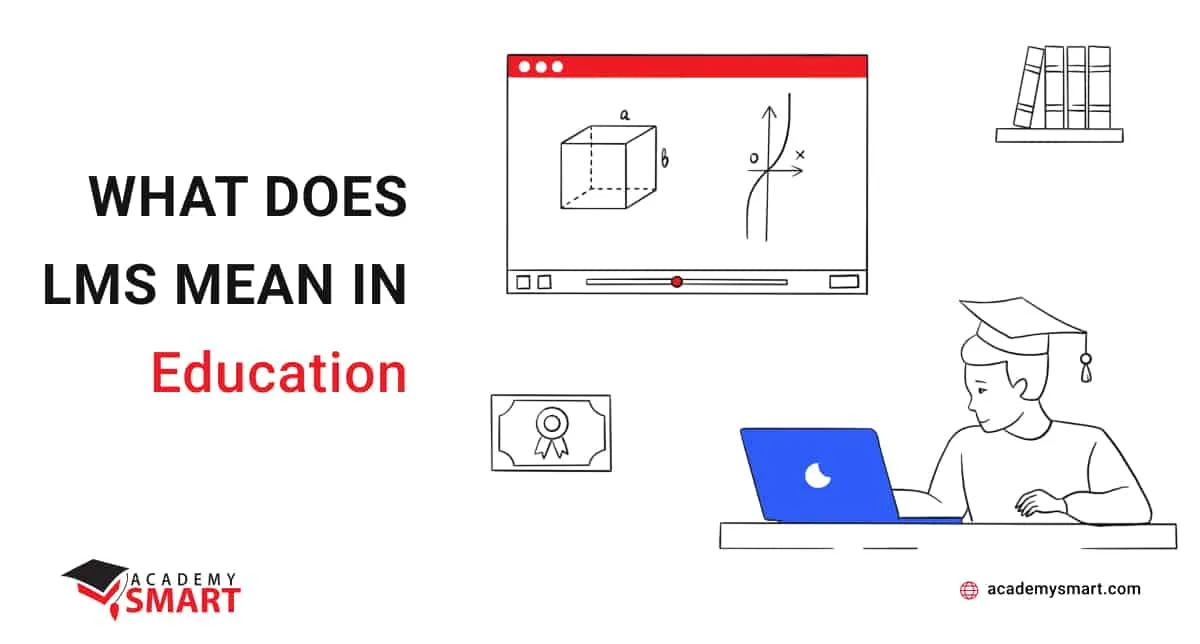
What does LMS stand for in education
Contents
Today we’ll tell you about what LMS stands for in education and why this software product is so much in demand by educational institutions nowadays. Also, we’ll consider another essential question: what are the main benefits of using LMS in studying for the prominent participants in the educational process – the teachers, the students, and the school management?
Let’s start with the fact that the active implementation of information technologies in the last decade has paved the way for qualitative changes in the educational process. Most of all, the process of learning digitization has been influenced by:
- improvements in computing hardware, personal and server computers;
- mass access to the Internet;
- availability of cloud technologies, including SaaS multi-tenant learning applications;
- simplification and cheaper creation and storage of content in various media formats;
- the widespread distribution of personal electronic devices.
As a result, a centralized electronic platform was created specifically for the educational process’s needs, uniting the educational institution’s digital infrastructure, its employees, and students into a single information space. This set of applications for creating courses and administering the learning process was called the Learning Management System.
What Does LMS Mean in Education?
The priority in creating modern e-learning tools belongs to higher education.The university environment developed the structure and basic functionality of LMS as we know it now:
- course creation;
- downloading and accessing learning materials anytime, anywhere;
- various forms of teacher-student interaction;
- means of controlling the progress of students;
- multiple reports for different classes of LMS users.
At the same time, university learning management systems were initially oriented to the academic environment, distinguished by a strict user interface, and required a certain level of computer literacy.
For some time, the presence of a functional LMS in the arsenal of educational tools was a kind of competitive advantage, which distinguishes the school, even despite the general trend of digitalization of education.
The situation changed dramatically in the crisis provoked by the sudden epidemic of COVID-19 when the mass transition of students to distance learning set the task of integrating LMS into the educational process for almost every educational institution. In addition, the average age of the user of learning management systems decreased significantly, which led to a revision of the organization of the user experience and the active adoption of innovative educational elements that greatly increased the student’s involvement in the educational process.
We can state that the market for LMS and related services grew from $10.84 billion to $13.38 billion from 2020-2021. At the same time, the share of educational institutions as end users of the product today exceeds 50%, and by 2028 the growth of the global market for LMS service providers is estimated at $44.49 billion.
Integrating modern e-learning methods is one of the significant factors influencing the educational system and a personal challenge for those responsible for the quality of education.
What is LMS in education and what are its benefits, let’s talk.
Benefits for teachers
The benefit of an LMS for a teacher is that it helps:
- create and organize instructional courses of any level of complexity;
- post learning materials in a variety of electronic formats and make them available to the audience;
- start learning and test materials in a variety of forms, and therefore more attractive to students;
- organize multi-channel communication with students, both in a group and individually;
- monitor the workload and effectiveness of student learning and evaluate its results;
- provide parental monitoring of student progress.
Understanding what LMS means in education allows teachers to use the most advanced and effective e-learning methods: microlearning, gamification, AR/VR technologies, etc. Good command of this tool will enable them to be flexible and creative to give students diversified and informative courses, strategically using synchronous and asynchronous activities.
Benefits for students
The advantages of an LMS for students, as platform users, are:
- remote access to learning information that they can use repeatedly and on-demand, always and everywhere;
- the interactive model of classes often includes game mechanics, as well as elements of augmented and virtual reality, which makes learning more engaging and exciting;
- variety of communication channels with the group and instructors facilitates the delivery of works for checking and solving current academic issues;
- modern learning management system, as a rule, offers the student a personalized learning path, taking into account the speed of mastering the material and the results of intermediate knowledge tests.
In addition, we note that the practice of e-learning contributes to the formation of self-organization and self-presentation skills.
Along with the involvement in the knowledge assimilation process, students’ self-discipline grows.
Assignments in the form of games and presentations and participation in various interactive formats, such as webinars, contribute to forming confident communication skills and social adaptation of students.
Not surprisingly, for most students, the answer to the question of what LMS is in education has become a much more exciting way to learn on their own.
Benefits for school administrators
In general, using an LMS for the school is beneficial because it allows:
- centrally host and store instructional materials within a single platform;
- get an overview of e-learning effectiveness for the whole educational institution, thanks to a comprehensive analytics system;
- qualitatively organize remote or blended learning;
- save teachers’ time when creating learning and evaluation materials, as well as when organizing them within courses;
- save financial and material resources due to the digitalization of learning and the repeated use of ready-made electronic materials that don’t lose their quality over time.
The experience of long-term distance learning in 2020 allowed educational institutions that had already implemented digital learning tools to test the effectiveness of their LMSs and identify shortcomings in their structural organization and functionality.
The non-triviality of the mass quarantine situation has influenced some management decisions. Today there is a tendency for gradual revision of requirements to the quality of the tools used. And the initiative often comes from both the teachers and the students themselves.
Previously, among the essential requirements for the learning management system were compliance with several state educational and security standards. Still, now the curve of mastering the functionality, user-friendly interface, minimized maintenance, LMS customization, and scalability are considered to be no less critical.
Summing up, we note that today the use of LMS in the educational process can already be regarded as one of the criteria for the quality of educational services provided by any educational institution. Heads of K-12 schools and universities are paying more and more attention to the quality of the software product, ease of use, functionality, and personal data security.
Modern LMS is a high-tech intellectual product, so its implementation in the educational process requires unique technical expertise. Not all educational institutions, especially K-12 level, have the relevant specialists in their staff. That is why the LMS market offers, in addition to the software product itself, a variety of services for LMS development and technical support.
Academy Smart has the appropriate expertise in developing from scratch and customizing existing e-learning systems of any level of complexity. We are ready to meet your challenges together. Get in touch to make your students’ education more comfortable and up-to-date.
LMS in education: Frequently Asked Questions
What is an LMS
LMS (Learning Management System) is a set of applications to create courses and administer the learning process online. Get more information about an LMS in our article What does LMS mean?
What are the benefits of LMS in education
The most common benefits of Learning management systems are:
- ability to create and organize instructional courses of any level of complexity and to host them centrally within a single platform;
- remote access to learning information repeatedly and on-demand, always and everywhere;
- variety of communication channels among teachers and students, both in a group and individually;
- a comprehensive analytics system;
- financial, material resources and work time saving.
More answers to questions about LMS in education and a detailed guide to choosing a platform you may find in the article How to Choose an LMS: A 4-Step Guide and tips
Book a free consultation

Reach out to start talking today!

